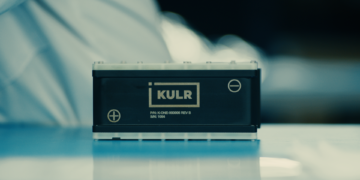Broadcom jumps on $10B AI customer; Lululemon sinks on weak U.S. sales and tariff costs
U.S. equities turned lower at midday Friday after government data showed August hiring slowed more than expected, renewing concerns about the strength of the labor market. The Dow Jones Industrial Average, S&P 500, and Nasdaq all traded in the red.
Lululemon Athletica (LULU) was the session’s worst performer in the S&P 500. The athletic apparel retailer cut its full-year guidance, blaming sluggish U.S. demand and higher costs tied to tariffs and the removal of the de minimis exemption, which had allowed lower-priced imports to avoid duties. Comparable-store sales also came in weaker than anticipated, sending shares sharply lower.
Other notable decliners included Copart, which fell after missing revenue expectations amid softer vehicle sales, and Advanced Micro Devices, which dropped following a downgrade from Seaport Research citing concerns about its AI accelerator business.
On the upside, Broadcom emerged as the index’s strongest gainer. The software and semiconductor company beat profit and sales estimates and revealed a new $10 billion customer, widely speculated to be artificial intelligence leader OpenAI. The announcement boosted investor confidence in Broadcom’s positioning within the fast-growing AI sector.
Tesla shares rose after the company offered CEO Elon Musk a new 10-year compensation package that could be worth as much as $1 trillion. Docusign also gained, climbing on stronger-than-expected results and an upgraded outlook as larger enterprises adopted its AI-powered products.
In broader markets, oil futures declined while gold prices advanced. Treasury yields dropped, with the 10-year note falling on the weaker jobs data. The U.S. dollar lost ground against major currencies, including the euro, pound, and yen. Most cryptocurrencies traded higher, underscoring continued investor interest in digital assets despite overall market weakness.
U.S. equities turned lower at midday Friday after government data showed August hiring slowed more than expected, renewing concerns about the strength of the labor market. The Dow Jones Industrial Average, S&P 500, and Nasdaq all traded in the red.
Lululemon Athletica was the session’s worst performer in the S&P 500. The athletic apparel retailer cut its full-year guidance, blaming sluggish U.S. demand and higher costs tied to tariffs and the removal of the de minimis exemption, which had allowed lower-priced imports to avoid duties. Comparable-store sales also came in weaker than anticipated, sending shares sharply lower.
Other notable decliners included Copart, which fell after missing revenue expectations amid softer vehicle sales, and Advanced Micro Devices, which dropped following a downgrade from Seaport Research citing concerns about its AI accelerator business.
On the upside, Broadcom emerged as the index’s strongest gainer. The software and semiconductor company beat profit and sales estimates and revealed a new $10 billion customer, widely speculated to be artificial intelligence leader OpenAI. The announcement boosted investor confidence in Broadcom’s positioning within the fast-growing AI sector.
Tesla shares rose after the company offered CEO Elon Musk a new 10-year compensation package that could be worth as much as $1 trillion. Docusign also gained, climbing on stronger-than-expected results and an upgraded outlook as larger enterprises adopted its AI-powered products.
In broader markets, oil futures declined while gold prices advanced. Treasury yields dropped, with the 10-year note falling on the weaker jobs data. The U.S. dollar lost ground against major currencies, including the euro, pound, and yen. Most cryptocurrencies traded higher, underscoring continued investor interest in digital assets despite overall market weakness.
You might like this article:Lululemon Shares Tumble After Weak U.S. Sales and Tariff Pressures











